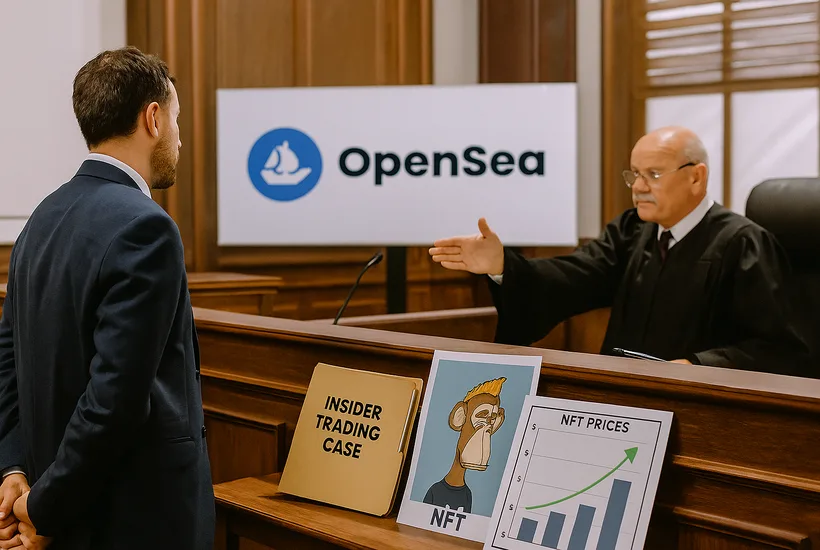- The U.S. Court of Appeals for the Second Circuit vacated the wire fraud and money laundering convictions of Nathaniel Chastain.
- The appeals court ruled that the jury may have convicted Chastain based on unethical, but not legally permissible behavior.
- The court’s decision is the first major appellate reversal in an NFT insider trading case.
A U.S. federal appeals court has overturned the conviction of former OpenSea product manager Nathaniel Chastain, in what was hailed as the first-ever insider‑trading prosecution involving NFTs.
Chastain was originally convicted in May 2023 of wire fraud and money laundering. He allegedly used inside knowledge about which NFTs would be featured on OpenSea’s homepage to purchase them ahead of time and profit when they gained exposure. He reportedly made around $57,000 from roughly 15 NFT trades.
Improper jury instructions
However, on July 31, 2025, the Second U.S. Circuit Court of Appeals in Manhattan ruled that the jury instructions at trial were improper. The court found that jurors may have convicted Chastain based on unethical behavior, rather than an actual violation of a property interest belonging to OpenSea, which is required under the wire fraud statute.
Newsletter
Get weekly updates on the newest crypto stories, case studies and tips right in your mailbox.
Judge Steven Menashi said the trial judge made a mistake by telling jurors they could convict even if the information Chastain used didn’t have any real commercial value to OpenSea. That instruction risked turning honest-but-unethical actions into crimes, even when no actual theft had occurred.
Implications for digital asset law
Chastain’s legal team welcomed the ruling, calling the original case a “miscarriage of justice.” Prosecutors have not yet said whether they intend to retry him, as the case is remanded for further proceedings consistent with the appeals court’s decision.
The court’s decision changes how fraud laws work with digital assets. It shows that it’s hard to use old laws meant for physical items to handle NFTs and other digital assets. As crypto keeps evolving, this case makes it clear that new laws and clear rules are the need of the hour, especially when dealing with digital assets.













